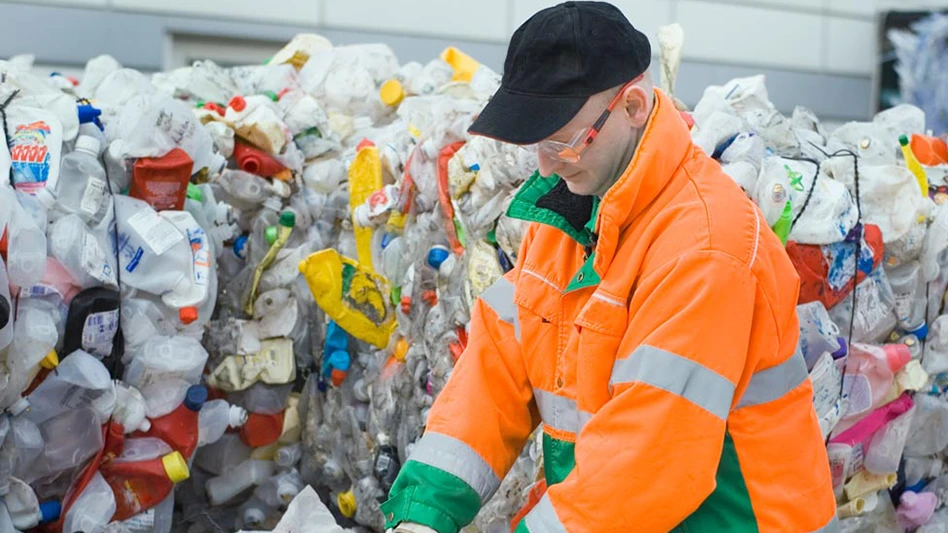
Photo courtesy of Graham Packaging
Lancaster, Pennsylvania-based Graham Packaging, within its 2023 environmental, social and governance (ESG) report, says the mechanical recycling plant it operates in York, Pennsylvania, reprocessed some 17,850 tons of high-density polyethylene (HDPE) plastic scrap last year.
“Our mechanical recycling facility is one of the largest plastic recycling plants in the United States,” the company says in its recently released report.
The York-based Graham Recycling Co. (GRC) is focused on recycling No. 2 HDPE bottles into postconsumer resin (PCR) in an effort that has helped Graham to become a "leading supplier of bottle-grade recycled plastic containers in North America.”
“The GRC plays a critical role in our mission to create a circular economy by providing access to large volumes of recycled content for packaging production," the company says. "It also represents Graham’s commitment to leadership in environmental responsibility—saving energy and natural resources while significantly reducing greenhouse gas emissions by diverting hundreds of millions of pounds of plastic from landfills.”
Data included in its ESG report indicates the York facility accepted more than 18,000 tons of inbound material last year, achieving a 98 percent recycling rate while also finding reuse applications for another 0.7 percent of material received.
On the overall raw materials side, PCR resins provided just 8.2 percent of the company's total feedstock in 2023. That figure is well short of a 2025 target of 25 percent PCR use, but it represents a gain from figures of 6.8 percent in 2020 and 7.2 percent in 2022. Graham estimates it produces some 16 billion units of packaging annually.
Throughout its global operations, Graham recycled 70 percent of the nonhazardous material it generated at the 65 facilities it operates in North America, Europe and South America.
In an assessment of the American plastic recycling landscape, Graham says household consumers find themselves navigating a terrain “as unruly as the Wild West.”
"A major issue plaguing this sector is the glaring lack of regulation and consistency, breeding widespread confusion and suboptimal outcomes," the company says. "Products often bear the ‘please recycle’ plea, yet many of these items are far from recyclable, a practice that straddles the line between hopeful encouragement and misleading misinformation.”
The company, which has the perspective of operating its own reprocessing plant, says material recovery facility (MRF) operators tend to adopt a cautious stance, erring on the side of exclusion rather than risk equipment damage or process disruption from nonrecyclable materials. "This conservative approach sometimes sidelines genuinely recyclable items to landfills, undermining sustainability efforts," it adds.
The ESG report expresses support for California’s initiative to curb "unfounded recyclability claims,” which it says helps spotlight the urgent need for national standards.
“While the path to rectifying the recycling conundrum in the U.S. is fraught with challenges, every regulatory enhancement brings us a step closer to a sustainable, clear-cut recycling system," the company says.
“At Graham Packaging, we are committed to building a sustainable future," President and CEO Bob Pyle adds. "Our dedication to sustainability, inclusivity and transparency is not just about improving our own carbon footprint. It's also about supporting our customers in achieving their sustainability goals.”
Latest from Recycling Today
- Aqua Metals secures $1.5M loan, reports operational strides
- AF&PA urges veto of NY bill
- Aluminum Association includes recycling among 2025 policy priorities
- AISI applauds waterways spending bill
- Lux Research questions hydrogen’s transportation role
- Sonoco selling thermoformed, flexible packaging business to Toppan for $1.8B
- ReMA offers Superfund informational reports
- Hyster-Yale commits to US production





